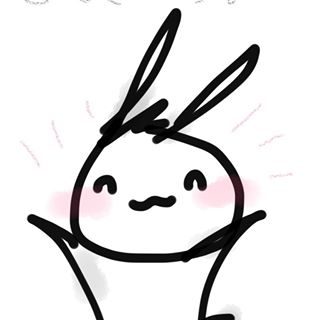晚上p问我说,你知道现在 HackerNews 排名第一的文章是什么吗?
我说,不知道啊!一查,发现是 Paul Graham 的 Having Kids。我特别喜欢这个作者,自从看了他的《黑客与画家》,就觉得这个人说话特别逻辑清晰,而且有很独到的见解,大部分都是在读到他写的文字之前我都没怎么考虑过的。这篇文章大概是说,在有小孩之前,他总是觉得有小孩是很可怕的事情,但是有了小孩以后发现虽然忙了、自己的时间少了,但是每一天幸福的瞬间却变多了;所以其实有小孩也不那么可怕啦。
然后评论里就有人说,有小孩的这些人,就跟加入了邪教一样,跟他们聊天,扯什么都能扯回到自家小孩身上,好像除了小孩以外,他们的大脑已经完全无法考虑其他事情,自我简直都被覆盖了似的。
怕什么
其实我一直害怕小孩也是这两个原因。
一是在中国这么多年,圈子里没什么小孩,而大街上能看到的孩子里熊孩子居多,害怕以后成为黑面凶吏,整天管这管那,累怒到暴毙;另一个就是像这条评论说的,怕自己也变成『最害怕成为的样子』,说什么都是小孩小孩小孩小孩。
而且这种人格覆盖,感觉看起来都不像是自己可以控制似的。或者是我日常生活中接触到有小孩的人不多,所以反例太少了,都无法想象一种健康的分配状态到底是什么样的。
哎。
小欢喜
熊孩子遍地撒丫子,就不说了,但是遇到喜欢小孩的一瞬间也不是没有过。
第一次,印象特别深刻的,是在南京的时候,好像是因为跟一个高尔夫球相关职业的男生出来相亲的缘故,我跟朋友两个人跟这位男生,一起去了一个高尔夫球场。男生当然是没下文的,我的高尔夫球打的当然也是很臭的,但我唯独记得当时在我们左边的一个年轻的爸爸,带着大概六七岁的儿子,在教他打高尔夫球。
让我我印象深刻的是,这位爸爸跟孩子说话的语气,特别和蔼平静,而且教孩子的时候,跟孩子的互动,一丁点的颐指气使或者哄小孩的语气都没有,完全就是把孩子当一个平等的人来对待。记得当时听这个爸爸在边上说啊说的,我一辛酸,差点眼泪都要掉下来了。
啊,原来父母跟小孩也可以这样啊。
第二次印象深刻,是到加拿大之后不久。因为我刚到温哥华的时候,为了溜冰,住的地方就在冰场边上,也经常遇到带小孩溜冰的大人。刚开始的时候,的确是很震惊——怎么小孩好像都不是很熊啊?小怪兽们怎么都这么平静,都跟小大人似的。看大人小孩互动,也是平静有礼貌的。
现在来了都四五年,震惊也早就变成了习以为常,本来见到小孩就想躲的,现在也变成看到可爱的小孩跟看到帅气的狗狗一样,忍不住想多瞄两眼。不知道国内新一代的小怪兽们是不是也进化了,开始慢慢也不熊了呢?
无法预测的未来
看评论,基本两条路可走。
一是有了小孩以后,被可爱的微笑给感化,立刻陷入情网。另一种是累觉不爱,还要为自己不爱小孩而感到愧疚。
罗素在 The Conquest of Happiness 里提到说,要想要养育小孩并感到快乐很简单,只要你对它抱有纯粹的尊重:
From a very early age there comes to be a conflict between love of parental power and desire for the child’s good, for, while power over the child is to a certain extent decreed by the nature of things, it is nevertheless desirable that the child should as soon as possible learn to be independent in as many ways as possible, which is unpleasant to the power impulse in a parent. Some parents never become conscious of this conflict, and remain tyrants until the children are in a position to rebel.
Others, however, become conscious of it, and thus find themselves a prey to conflicting emotions. In this conflict their parental happiness is lost. After all the care that they have bestowed on the child, they find to their mortification that he turns out quite different from what they had hoped. They wanted him to be a soldier, and they find him a pacifist, or, like Tolstoy, they wanted him to be a pacifist, and he joins the Black Hundreds. But it is not only in these later developments that the difficulty is felt. If you feed an infant who is already capable of feeding himself, you are putting love of power before the child’s welfare, although it seems to you that you are only being kind in saving him trouble. If you make him too vividly aware of dangers, you are probably actuated by a desire to keep him dependent upon you. If you give him demonstrative affection to which you expect a response, you are probably endeavouring to grapple him to you by means of his emotions. In a thousand ways, great and small, the possessive impulse of parents will lead them astray, unless they are very watchful or very pure in heart. Modern parents, aware of these dangers, sometimes lose confidence in handling their children, and become therefore even less able to be of use to them than if they permitted themselves spontaneous mistakes, for nothing causes so much worry in a child’s mind as lack of certainty and self-confidence on the part of an adult.
Better than being careful, therefore, is to be pure in heart. The parent who genuinely desires the child’s welfare more than his or her power over the child will not need textbooks on psycho-analysis to say what should and what should not be done, but will be guided aright by impulse.
And in that case the relation of parent and child will be harmonious from first to last, causing no rebellion in the child and no feeling of frustration in the parent. But this demands on the part of the parent from the first a respect for the personality of the child — a respect which must be not merely a matter of principle, whether moral or intellectual, but something deeply felt with almost mystical conviction to such a degree that possessiveness and oppression become utterly impossible.To return to the problems with which this book is concerned, the full joy of parenthood in the modern world is only to be obtained by those who can deeply feel this attitude of respect towards the child of which I have been speaking. For to them there will be no irksome restraint upon their love of power, and no need to dread the bitter disillusionment which despotic parents experience when their children acquire freedom. And to the parent who has this attitude there is more joy in parenthood than ever was possible to the despot in the hey-day of parental power. For the love that has been purged by gentleness of all tendency towards tyranny can give a joy more exquisite, more tender, more capable of transmuting the base metal of daily life into the pure gold of mystic ecstasy, than any emotion that is possible to the man still fighting and struggling to maintain his ascendancy in this slippery world.
(这段话总是让我反复思考……)
希望我以后能喜欢上自己的小孩;希望自己能全心地看着这颗种子成长成自己本来会成为的样子,不必把自己觉得好的事情强加在它的身上;希望自己还有自己喜欢做的事情,小孩只是生活中好玩的一部分。
还有以前看到数据说,成为父母以后两到三年内,自尊心会下降很多,因为对自己要求太高,总觉得自己不是够好的父母,所以千万别对自己要求太高,六十分及格就好。
最后,希望以后打脸不要打得太疼啊!ノ)゚Д゚(
